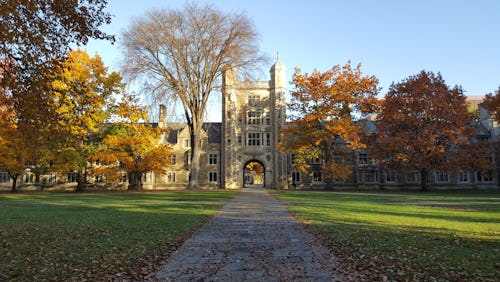Life
An International Grad Student Explains Why ICE’s New Rule Is So Devastating
“People think of us as temporary residents who just float through countries. But that’s not true.”

On July 6, the U.S. Immigration and Customs Enforcement (ICE) announced that international college students who are F-1 visa holders cannot remain in the country if they do not have in-person coursework to complete. This news comes as many universities plan to be at least partially online come fall, to protect students and faculty from exposure to coronavirus. If their institutions stay fully online, thousands of international students will not be allowed to stay in the United States.
Over 26,000 professors across the country signed an open letter in opposition to the new rule, which follows the Trump administration’s restrictions on H-1b visas for foreign workers and other anti-immigration policies. A number of universities are devising one-credit, “in person” classes to protect students from deportation, and on July 13, 17 states sued to block the rule from going into effect. But Heba Gowayed, an assistant professor of sociology at Boston University who organized the open letter, says these workarounds are not enough. “What happens if we have another shutdown? This policy could still apply. Are we going to have our students deported halfway through the semester?” she tells Bustle.
Pratiti Deb, 27, is concerned for her immediate future, as well as those of her friends. The Kolkata, India native is an F-1 visa holder who first immigrated as an undergraduate and is now pursuing her PhD in quantum physics at the University of Chicago. Deb tells Bustle what this announcement means for international students.
Having been here since 2011, I have no other academic home. I didn’t go to college in India; I went to Cornell undergrad and then stayed in the U.S. for grad school. I think about going back to India to be in academia one day, but it would all depend on what I’ve learned here — and can never happen if I don’t complete my PhD. That’s simply out of the question for me.
It would be impossible for me to continue my research from home in India. I work on experimental quantum information, and my day-to-day includes going to a lab outfitted with a lot of lasers and physically moving things. I need to be in close physical proximity to my experiments. The infrastructure for this science is pretty unmatched outside of the U.S. So I can’t just go back to India and access this kind of lab.
If we have to go back to school in person, we will all get sick, no matter where you’re from.
I was applying to grad schools when Trump was elected and I remember saying to my undergrad advisor, “Maybe I should go to Europe or the UK now.” It felt like a joke in the moment, but now it feels like my academic life really is at risk.
I’m hoping my university will offer researchers in-person credits and that this new policy won’t apply to us — but this issue isn’t just about me. International students are all in a precarious position. I can’t stop thinking about everyone else who might have to leave. Depending on where you’re from, you may not have Internet at home. The political situation in your home country may be unstable. The status of COVID in your country might make things unsafe or may prevent you from being able to re-enter from the U.S.
A lot of us are reading this news as the Trump administration wants universities to reopen, and is using us as bargaining chips. It’s really harmful for us as international students, and it’s harmful to our American peers too. The reality is we’re in a pandemic. If we have to go back to school in person, we will all get sick, no matter where you’re from.
As international students, people think of us as temporary residents who just float through countries. But that’s not true. We’re here for at least four years. And in that time, we’re not just in a lab, but are making friends, investing in our community and neighborhoods, developing hobbies and relationships. Our lives here are everything.
This interview has been edited and condensed for clarity.
This piece was updated on July 20, 2020.